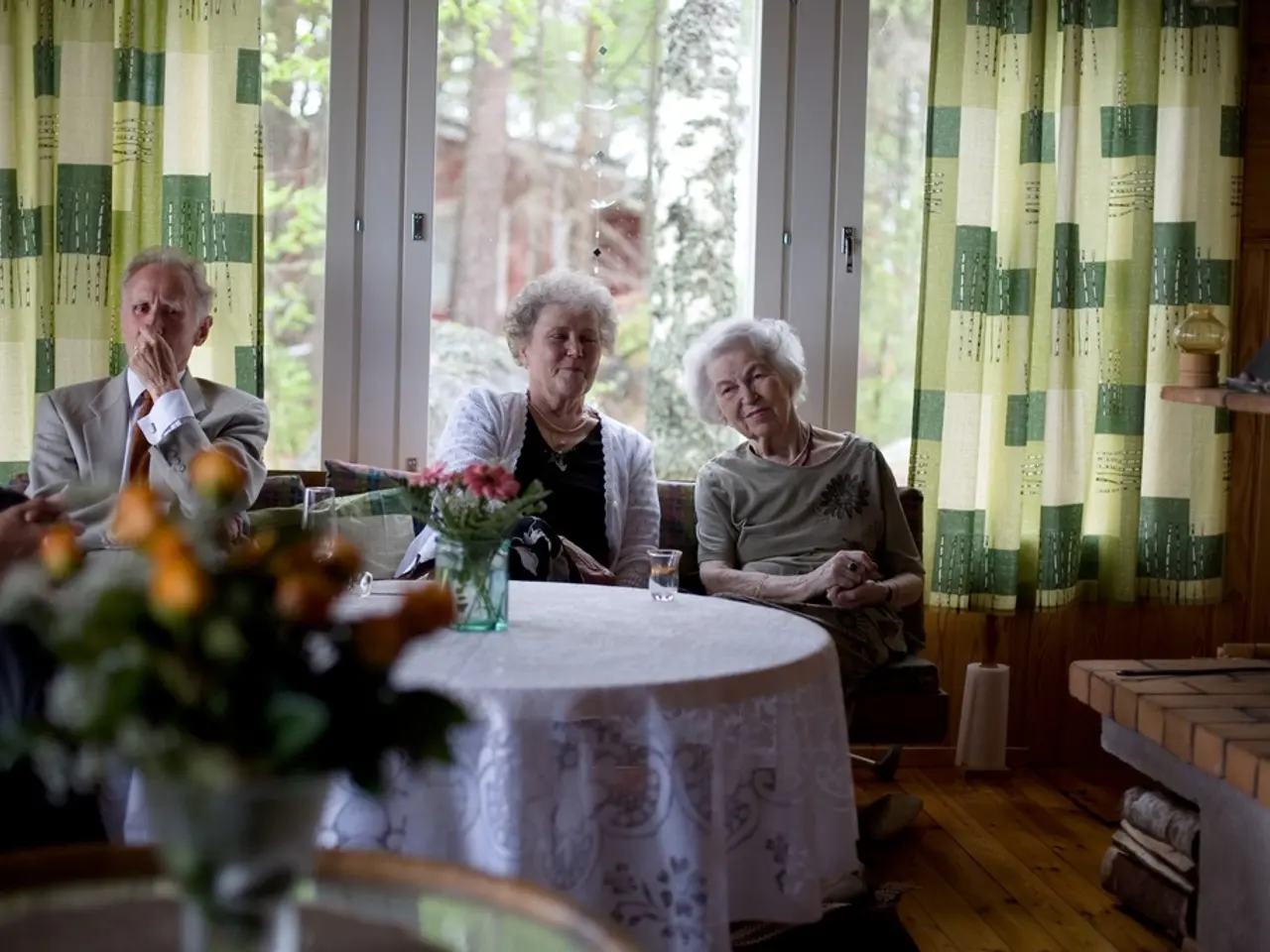Ten Unsuitable Phrases to Avoid When Interacting with an Elderly Individual, Along with Suggested Alternatives
In our interactions with older adults, it's essential to remember that aging is a natural part of life, not something to be pitied or shied away from. Instead, we should treat older adults as full, capable individuals, respecting their independence and autonomy.
One simple yet effective way to achieve this is by asking, "Would you like a hand with that?" This question gives the person the choice and shows respect for their independence. On the other hand, constantly offering help can take away their independence, especially if they didn't ask for it.
Listening more than talking and paying attention to what lights up the person and what shuts them down can help you use words that build them up. Talking about books, shows, family, hobbies, anything besides just health can help avoid making the person feel defined by their age or their health. If you ever do say the wrong thing, just apologize and do better next time.
Avoiding ageist language is crucial in these interactions. This includes terms and ways of speaking that assume older adults are less capable, such as "elderspeak," which involves baby talk, overly simplified vocabulary, raised pitch, slow speech, terms of endearment like "sweetie" or "honey," or speaking louder and repeating unnecessarily without cause. Other ageist phrases include dismissive comments like "Okay, boomer" or patronizing nicknames and assumptions about hearing or cognitive abilities.
To avoid ageist language, treat each person as an individual rather than making assumptions based on their age. Speak to them with respect using a normal volume, pace, and vocabulary — the same way you would with adults at other ages. Pay attention to their responses and adjust your communication only if they indicate a need, rather than presuming limitations. Recognize that cognitive sharpness, hearing ability, and preferences vary widely among older adults, so do not generalize or stereotype.
By eliminating "elderspeak" and ageist language, we can preserve dignity and avoid reinforcing negative stereotypes that contribute to feelings of helplessness or accelerated decline. The key is respectful, individualized communication without patronizing assumptions rooted in ageism.
Lastly, instead of comments like "You're aging so well" or "You don't look your age," consider saying "You have such great energy" or "You seem so full of life." Similarly, replace "It's Too Late for That Now" with "Go for it! What inspired you?" These phrases encourage growth and curiosity, fostering a positive and inclusive environment for all.
- Engaging in discussions about mental health, such as dementia, can be a part of promoting health-and-wellness among older adults, as long as conversations are approached with sensitivity and respect, avoiding ageist language.
- Social media platforms offer an opportunity to connect with older adults, sharing content about entertainment and various interests beyond health-related topics, which can help foster a sense of belonging and combat feelings of isolation associated with aging.
- Encouraging open dialogue about subjects like science, hobbies, books, or family can bring older adults and younger generations together, promoting mutual understanding and breaking down age-related barriers, ensuring that aging is seen as a part of life rather than a barrier to social interaction.




